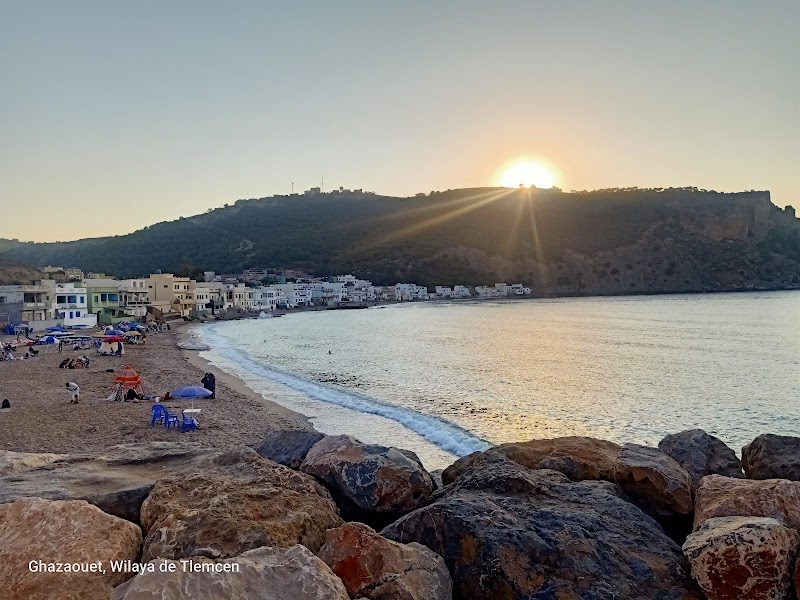
Street Arts Unleashed: Experiencing Festival International des Arts de la Rue in Oujda, Morocco
Every September, Oujda transforms as the Festival International des Arts de la Rue spills vibrant performances into its historic streets. This open-air urban celebration engages travelers with a bold mix of street theatre, acrobatics, and music, making it a must-experience event for culture and adventure seekers alike.
Wear comfortable walking shoes
The festival spans multiple venues throughout Oujda’s medina and main streets, so expect considerable walking on cobblestone and paved surfaces.
Carry a refillable water bottle
Late September in Oujda can still be hot and dry; staying hydrated while moving between performances is crucial.
Book accommodation near the medina
Proximity saves time and energy, allowing you to rest between long festival days and catch evening shows with ease.
Plan your itinerary ahead
With multiple simultaneous performances, check schedules and map locations in advance to avoid missing headline acts.
Street Arts Unleashed: Experiencing Festival International des Arts de la Rue in Oujda, Morocco
When the streets of Oujda come alive every year in late September, the air thrums with creativity and raw cultural energy. The Festival International des Arts de la Rue boldly transforms this northeastern Moroccan city into an open-air stage where performers dare the city’s old walls to keep still. This vibrant festival draws artists from across Africa and beyond, engaging audiences through street theatre, acrobatics, music, and puppet shows that interact directly with the crowd.
The event’s heart beats in Oujda’s medina and broad avenues, where narrow alleyways dare you to wander among color-washed walls and bustling market scenes. Floating aromas of Moroccan spices mingle with drums that push forward relentlessly, pulling visitors into the rhythm of local and international performances. The artistry is fiercely present, often challenging social narratives and city dynamics, encouraging participation rather than mere observation.
Attendance requires practical planning. The festival’s venues are spread across the city, so comfortable walking shoes are a must as you navigate between performances. Bring a refillable water bottle to stay hydrated amid Morocco’s late-summer warmth, and prepare for late-night shows that demand stamina and flexibility to catch the most evocative acts. Public transport is efficient, but pre-booking accommodations close to the medina ensures quick access and the chance to soak in Oujda’s distinctive mix of Arab, Berber, and French influences.
Oujda’s street festival offers more than spectacle; it presents a cultural interaction strongly tied to the city’s history as a crossroads between Europe and Africa. Local vendors offer traditional snacks between shows, inviting you to sample the sharp sweetness of oranges or the smoky richness of grilled meats. This festival is fiercely itself — a challenge to both the performers and the city’s residents, inviting everyone to experience the streets in a new light.
Whether you arrive as a casual observer or a seasoned festival veteran, this celebration in Oujda balances vibrant artistic expression with practical accessibility. It’s a chance to move through a living exhibition where every corner, every crowd, and every performer commands your attention. In Oujda, the streets don’t just host art—they become the pulse of an unstoppable, dynamic encounter. Prepare well, stay curious, and let the city’s spirit push you forward.
Nearby Trips
All Adventures
Boat Charters
Water Activities
Adventures near Oujda, Morocco
Discover the unique and memorable adventures that make Oujda, Morocco special.
Frequently Asked Questions
When and where does the Festival International des Arts de la Rue take place?
The festival usually runs for about five days in late September and early October, unfolding across multiple open-air venues in Oujda’s historic medina and main streets.
Is the festival suitable for families with children?
Yes, many of the street performances, including puppet shows and acrobatics, are family-friendly, though it’s best to check specific show content in advance.
How can I navigate between performances efficiently?
Most venues are within walking distance of each other. Using a festival map and planning your route can help manage time, while taxis and local buses are available for longer distances.
Are there opportunities to engage with the performers?
Many acts are interactive, making it part of the festival’s spirit to engage spectators directly. Don’t hesitate to participate—it's encouraged as part of the experience.
What local foods should I try at the festival?
Look for street vendors selling traditional Moroccan snacks such as msemen (flatbread), grilled meats, and seasonal citrus fruits—their flavors enrich the festival experience.
What should visitors know about safety and cultural respect?
Oujda is generally safe, but always be mindful of your belongings in crowded spaces. Respect local customs, especially during interactions with performers and vendors.
Recommended Gear
Comfortable walking shoes
Essential for navigating cobblestone streets and extended periods on foot.
Refillable water bottle
Keeps you hydrated during the warm days of the festival.
Lightweight backpack
Useful for carrying water, snacks, a map, and any souvenirs or festival programs.
Wide-brimmed hat
Provides sun protection during outdoor performances.
Local Insights
Hidden Gems
- "The rooftop terraces in the medina provide quieter, elevated vantage points for festival views away from crowds."
- "A lesser-known garden near Place Mohammed V offers a peaceful spot to rest between performances."
Wildlife
- "Though urban, the city hosts common sightings of migratory birds resting near Oujda's outskirts during fall."
- "Local cats are prominent and often mingle peacefully around festival crowds."
History
"Oujda’s location on an ancient trade route shaped its diverse cultural roots, making it a natural hub for a festival celebrating street arts blending African, Arab, and European influences."
